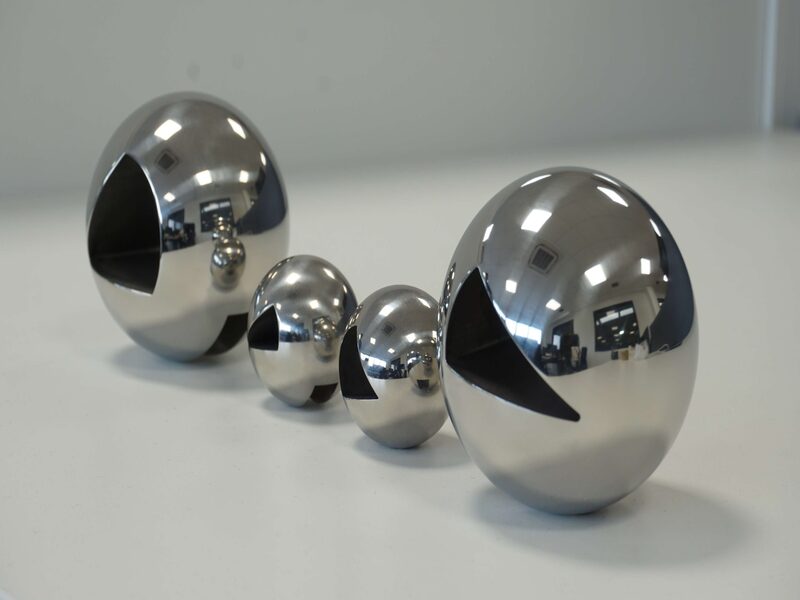Steel balls for valves are spherical components made from steel that are used as sealing or flow control elements within various types of valves. These balls are designed to create a reliable seal or regulate fluid or gas flow by being positioned within a valve body and interacting with valve seats or other sealing surfaces.
Key features and characteristics of steel balls for valves include :
Material : These balls are typically made from high-quality steel alloys, chosen for their mechanical properties, corrosion resistance, and durability. Common materials include stainless steel, carbon steel, and chrome steel.
Design and Shape : Steel balls for valves are spherical in shape, allowing them to form a tight seal against valve seats or other surfaces when pressed or rotated into position.
Applications : Steel balls for valves are used in a wide range of valve types and industries, including.
Ball Valves : In ball valves, the steel ball is used to control flow by rotating within a spherical chamber, blocking or allowing passage through ports.
Check Valves : In check valves, the steel ball acts as a movable element that allows fluid or gas to flow in one direction only.
Control Valves : Steel balls can be used in control valves to modulate the flow rate of fluids or gases in response to changes in pressure or other parameters.
Plug Valves : In plug valves, steel balls with cylindrical or tapered plugs are used to control flow.
Float Valves : Steel balls can be used in float valves to regulate liquid levels.
Pressure Relief Valves : In pressure relief valves, steel balls can help control the opening and closing of the valve based on pressure changes.
Hydraulic and Pneumatic Systems : Steel balls are also used in hydraulic and pneumatic systems for directional control.
Size and Tolerance : The size of steel balls for valves varies based on the valve's design and application. They are manufactured to specific tolerances to ensure proper fit and sealing.
Surface Finish : Steel balls for valves have a smooth and precise surface finish to ensure proper sealing and reduce friction during movement.
Corrosion Resistance : The choice of steel material is often influenced by the environment and fluids the valve will be exposed to. Stainless steel is commonly used for its corrosion resistance.
Quality and Manufacturing : These balls undergo quality control checks to ensure accurate dimensions, roundness, and surface finish. The manufacturing process includes precision grinding and polishing.
Coatings and Treatments : Depending on the application and operating conditions, steel balls for valves may be coated or treated to enhance their properties, such as wear resistance or corrosion resistance.
In summary, steel balls for valves are critical components that enable the proper functioning of different types of valves in various industries. Their precise design, material selection, and manufacturing ensure reliable sealing and fluid control, contributing to the efficiency and safety of fluid and gas handling systems.
